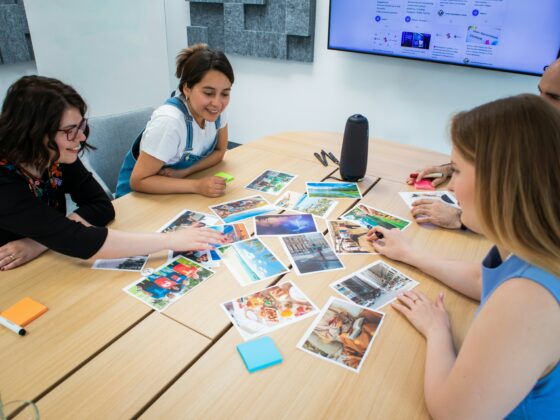A great look at tech priorities from C-level view in hotel chains. Can buy-now-pay-later work in hospitality? On finding product-market fit. And a rundown of the tech battle between Airbnb and hotels.
Hello ,
If you’re on holiday, enjoy it and I hope the newsletter gives you some ideas for when you return. If you’re at work (like me) then go read the article towards the end about how Execution eats Strategy for breakfast, because it does.
Best, Martin
About me: I'm a fractional CMO for large travel technology companies helping turn them into industry leaders. I'm also the co-founder of 10minutes.news a hotel news media that is unsensational, factual and keeps hoteliers updated on the industry – also it is the most read hotel newsletter in Europe. See the international edition of the newsletter and subscribe to it here. The migration to cloud
Two of my recent opinion pieces are colliding here. The Digital Officer and the PMS Wars. On the one hand, hotel tech needs to move to cloud, but on the other it isn’t going to do anything for the guest on the short term. So we need to factor in that the big shifts that will make technology a driver of better experiences, requires a better foundational layer. Non cloud PMS solutions are blocking faster guest technology evolutions. It’s refreshing to see a round-up of recent work by hotel chain/franchise companies C-level on how they’re implementing technology. Some are focused on driving guest experience.
C-LEVEL ROUNDUP ON CLOUD SYSTEMS IMPACT
Travel Influencers for low season?
Many years ago, I was working with Sebastien Felix discussing a platform he had built for influencers in the hotel industry. It was pretty great system with methods of tracking the influence and so forth. But the problem in the hotel industry is that those influencers would drive more demand in high season and not really in off season, so most hotels weren’t really interested. It was probably too early, with many of the influencers in the fashion industry and not so many in travel. With the growing influence of TikTok and travel influencers in general, maybe this is a way to generate demand during off-season? Chip Conley’s recent article and several great travel videos on instagram shot off-season made me realize, again, that there really is a need to distribute travel more evenly across the year, especially if the growths keeps going as it is going.
PERFECT TRAVEL TIMING
The growing flexibility of work, and hotels
As work becomes more flexible around the world the need for flexible workspace is growing. It isn’t a new thing, and there are plenty of hotels offering a variety of solutions for this. But it isn’t really structured. Searching for a place to do a video call between two meetings in a foreign city isn’t easy, most of the time it ends up being a voice call with the mute button pressed. The problem for hotels and cafes is having an army of people on their laptops in the lobby/cafe isn’t really welcoming for hotel guests. But then having an empty space isn’t exactly great either. I wonder if there’s an opportunity for hotels to build better flexible workspaces into their low/unused square meters (or feet 🙂 with some form of quality guarantee (power, wifi, calls, noise etc). For those who travel a lot, knowing exactly where to go to get work done is a godsend.
A FLEXIBLE WORK PLATFORM
Inspiring and creative ads
In the link below is compilation of 20 creative ads that showcases the use of various strategies to convey great messages. The ads span a range of brands and purposes, from British Airways’ emphasis on speed to WWF’s engagement in trending topics. In the hotel industry – especially at hotel level – we’re hype-focused on performance marketing. It’s not unreasonable, but it would be nice to see some great creativity in hotel marketing. Get inspired from these slides. And send me great ads in our industry you’ve found. I’d love to share them with others.
20 GREAT CREATIVE ADS
Buy-now-pay-later in hotels?
Over the last 3 years, ecommerce boomed with buy-now-pay-later (BNPL) models. To the point where some brands selling a $20 product on BNPL tripled their sales. I’m surprised that this hasn’t picked up in the hotel industry. We sell a big ticket item that one would think is perfect for it. Is it because of the risk of cancellations and companies not wanting to pay in advance? Is it because it is so easy to book 5 hotels and cancel 4 at the last minute? Or just a technology problem where hotels don’t have integrated payments and thus can’t really manage it? There’s a startup in India that is working on something.
PAYMENT FEATURE BENEFITS
On Product-Market Fit
Startup world talks a lot about Product-market fit (PMF) it’s that critical moment when your product is exactly right for the market needs and thus growth starts happening organically because you’re filling a need. My hot take on this is that common sense is the best way to achieve it (ie. sell a service, take money, make happy customers and then build a product). Somehow in the last 20 years of massive startup funding, it seems some have detached themselves from common sense and try to achieve a magical product market fit based on case studies of Google, Facebook, Microsoft etc. In most cases business that succeeds is common sense, but every so often fairy tale stories happen (like above) and people focus on replicating those rather than replicating the 99%. Below is a link to one of the best product-market fit methods I’ve seen. One that will work pretty much every time.
PATH TO PRODUCT-MARKET FIT
Travel and Mobility tech stats
OneChart’s latest issue delves into the evolution of travel and mobility, focusing on the valuation of frequent-flyer programs from major airlines like Delta, American Airlines, and United Airlines, each exceeding $20 billion. Despite this, there’s a noted trend of younger travelers “moving away” from traditional loyalty programs. Moving way in quotation marks because I also suspect that loyalty programs with hotels and airlines happen at a stage in life rather than a generational trend. Also in the report, how the airline industry is also facing increased customer dissatisfaction, but there is potential for improvement through the use of Generative AI chatbots, which could handle tasks such as rebooking more effectively than current systems.
TRANSFORMATION OF TRAVEL & MOBILITY
THOUGHTS:
Airbnb vs Hotels: The tech battle
A while back, I shared a post on LinkedIn where I pointed out that, from a digital guest experience perspective, Airbnb is miles ahead of the hotel industry. I warned that if hotels don’t step up their tech game, they might lose customers to Airbnb because, let’s face it, the experience is just a lot smoother.
That post stirred up some interesting reactions, with people defending their preference for hotels over Airbnb, complaining about Airbnb’s cleaning fees, and so on. But it seemed like some missed the point.
It’s not about Airbnb vs. hotels or one taking over the other – we’ve moved beyond that. We all know there’s room for both. It’s about recognizing that when it comes to technology, Airbnb has the advantage. Their digital experience is simpler and more efficient, from booking to leaving, while hotels often require multiple repetitive transactions – such as payments.
Some argue that the “human touch” justifies these inefficiencies, but let’s be real – nobody likes discussing payments. That’s not a positive interaction for anyone. What we should focus on is using technology to remove friction points and streamline the guest experience.
Take McDonald’s, for example, I know you’re cringing just reading their name in an article about hotels. But when they introduced kiosks for ordering, they reduced queues and repurposed staff for table service. As a result, they’ve improved both efficiency and the human touch. Nobody wants to hold up a line discussing burger options, right?
Nowadays, our digital lives are becoming more and more integrated, especially at home. We used to think of hotels as offering a superior experience, with high-end tech and luxurious furnishings. But that’s not really the case anymore. Home tech has surpassed what most hotels offer, with smart lighting, climate control, and entertainment systems.
It is safe to assume that today’s travelers expect their accommodations to have the same or better technology than they have at home. Hotels need to catch up on the digital side of the guest experience. Yes, it’s more challenging for hotels to upgrade and innovate due to constraints like security and infrastructure, but guests want convenience. They’re used to it at home, and they expect it while traveling.
The point I wanted to make in my original post is that if hotels don’t adapt and improve their tech game, they’ll lose out to platforms like Airbnb. Guests will gravitate towards the more convenient option.
So, no, it’s not about hotels vs. Airbnb. It’s about who can provide the most convenient experience for guests, and a huge part of that is through their mobile devices. Airbnb seems to have figured this out – but have hotels?
In my opinion, hotels should create a new role: Guest Experience Designers. These professionals would focus on crafting the most seamless and enjoyable guest journey by leveraging technology, training, interior design, sourcing, and more. It’s time for hotels to step up and embrace the digital transformation. It’s not just about survival – it’s about thriving in the age of convenience.
Let’s not forget that embracing technology doesn’t mean losing the human touch. Rather, it frees up hotel staff to focus on creating memorable guest experiences instead of getting bogged down in administrative tasks.
We’re at a cross roads now, where technology has become so important to our daily lives (and is about to get even more so) that hotels need to hurry up. Get rid of old legacy tech, invest in new solutions that can deal with all the new tech that is about to come.


